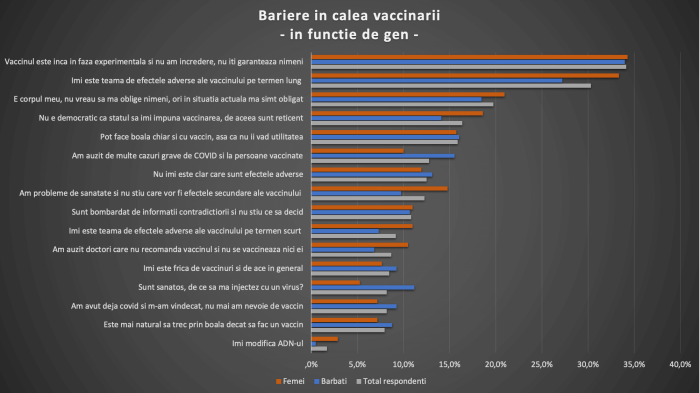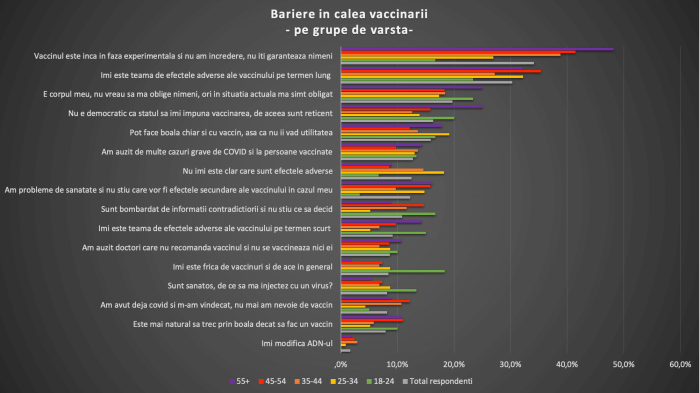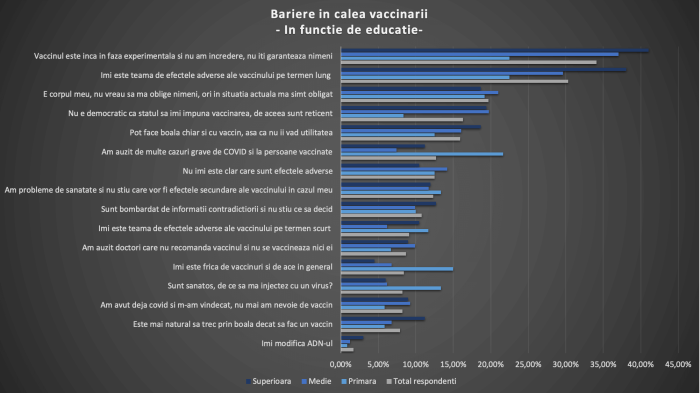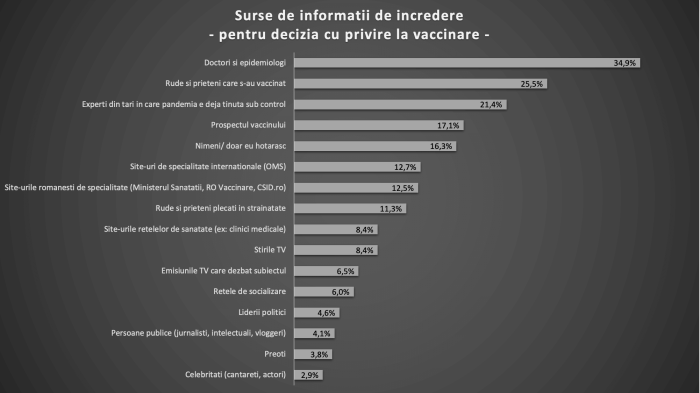In all the talking online about the vaccination against Covid-19, there are no moderate opinions – in October, of the 15,000 comments and forum posts, 59% were about conspiracy and anti-vaccine theories. On the street, on the bus, and TV, Romania seems to be divided into pros and cons of the vaccine. But is this the mirror of Romanian society?
Leo Burnett Romania conducted a study to see to what extent the two diametrically opposed attitudes are representative of Romanian society.
Irina Savu, Data Intelligence Director, Leo Burnett: “In reality, things are very different from what we see in the media and on the Internet. The fact that anti-vaccine people are very vocal – almost 60% of online comments – does not mean that there are many. The study shows that less than 20% of unvaccinated people are anti-vaccine. The vast majority of the unvaccinated population is disoriented – they do not reject the idea of vaccination, but they face many fears and ambiguities for which they have not found an answer in the communication so far.
The research identified four typologies among undecided vaccinators, each characterized by their own barriers to vaccination but also by a series of strong personal motivations that could lead them to a decision.
Fearful about the effects of the vaccine – 36% of undecided vaccinations
The novelty of the vaccine against Covid-19 is a barrier that worries especially those over the age of 35, from urban areas, with secondary and higher education. Fear of long-term effects is especially noticeable among women and people with children. Young people aged 18-24 and people over 55 are most concerned about the short-term side effects of the vaccine. Also, young people and people in rural areas are those who have as an important barrier the fear of needles in general.
Sceptics about the usefulness of the vaccine – 24% of undecided vaccinations
Doubts about the usefulness of vaccination come from the fact that the vaccine does not provide 100% protection against the new coronavirus; this leads them to consider that they do not need a vaccine, especially for young people up to the age of 35. The information that there are many serious cases of COVID-19 and among vaccinated people is of particular concern to men, people over 55 and those with primary education. The belief that it is more natural to go through the disease is the strongest among men in urban areas.
Disoriented by the lack of information – 23% of undecided vaccinations
Uncertainty about side effects is a barrier against vaccination, especially for men, people with children and people in rural areas. Young people and people with higher education feel blocked by the multitude of contradictory information circulating in the media. Unfounded rumours or scientifically erroneous information, such as being injected with a virus, especially stop men, young people and people in rural areas.
Opponents of the vaccine requirement – 17% of undecided vaccinations
For some hesitators, compulsory vaccination is in itself a major barrier, raising concerns about the Covid-19 vaccine. This category mainly includes people over 55, young people up to 24, as well as women.
Pro-vaccination motivations
Protecting the family is the strongest motivation that could determine the undecided vaccinators to choose the vaccine (37%). This is followed by the desire to return to normal life (27%) and only then the care for one’s own health (26%). Among young people, there is also the possibility to travel, which is an even more important motivation than protecting the family (39%). Vaccination lottery or other benefits, such as a day off work, are the least convincing pro-vaccination motivations for undecided vaccinations (3%).
Sources of information
The sources of information trusted by those waiting for a decision are: doctors and epidemiologists (35%), vaccinated friends and relatives (26%) or experts from countries where the pandemic is kept under control (21%). In the case of young people, relatives who have gone abroad also stand out as a reliable source of information (22%). The most unconvincing sources of information – in order: celebrities, priests, public figures or politicians.
Irina Savu, Data Intelligence Director, Leo Burnett: “The study reveals that after almost two years of pandemic and one year, since the vaccine was launched, most people lack basic information such as understanding the severity of Covid-19 disease or how it works. The vaccine and what are its side effects. Fear and lack of information are the main reasons for the low vaccination rate. People still need coherent and relevant communication, from reliable sources, to answer the ambiguities, to address each individual fear and to build on the most important motivations for each social category”.
We can provide the complete results of the study to all those who wish to consult them and deepen the subject presented.
Please contact us at contact@dataintelligence.ro
Featured products
 All Publicis Groupe Romania proprietary data tools in one place.
All Publicis Groupe Romania proprietary data tools in one place.Discover the power of our tools and feel free to get in touch.














